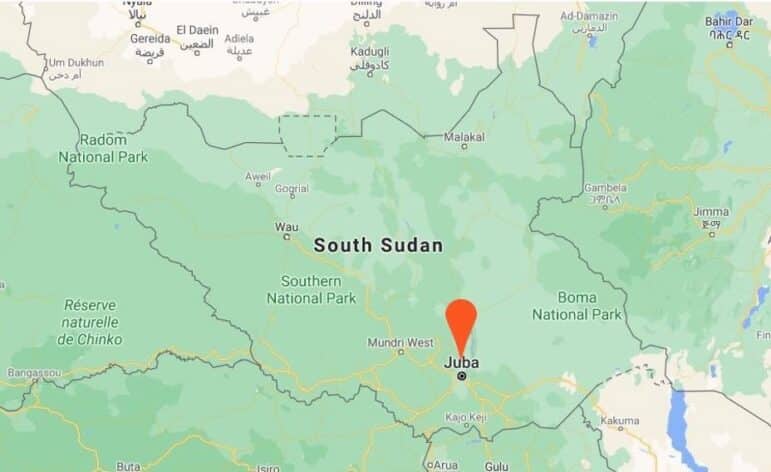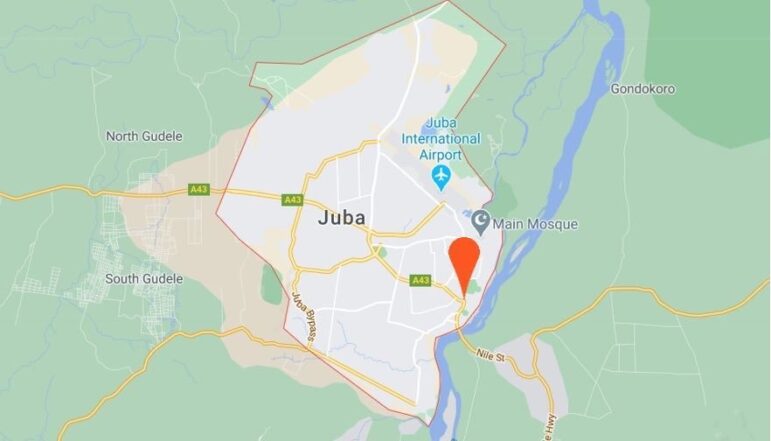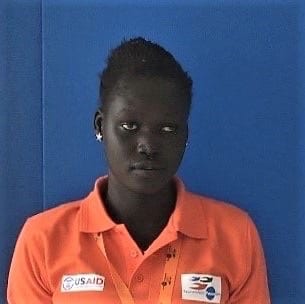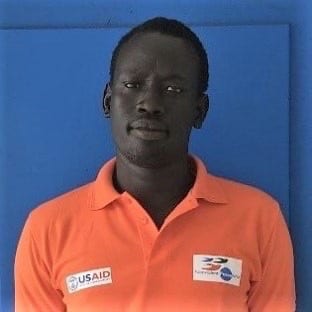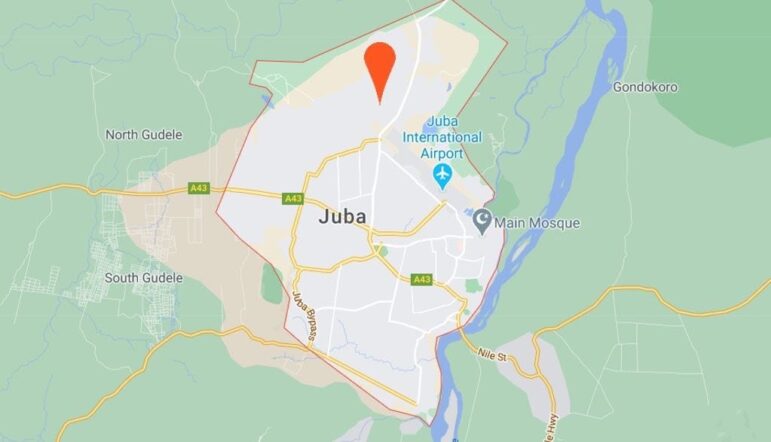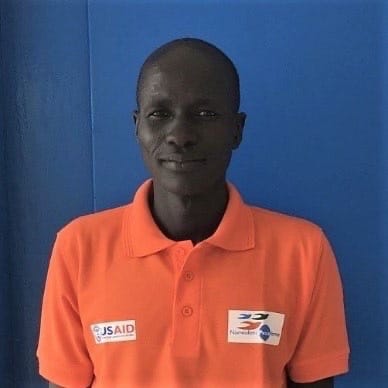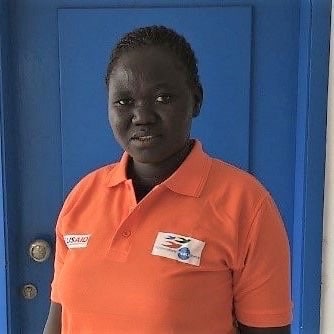Project Launch: COVID-19 Protection Response in Juba
To protect civilians from violence and vulnerabilities as result of or exacerbated by COVID-19, NP has launched a project funded by USAID’s Office of Foreign Disaster Assistance (OFDA) in Juba, South Sudan.
In August 2020, South Sudan reported more than 2000 confirmed COVID-19 cases. Beyond access to emergency COVID-19 services, it is crucial to recognize the risk of increased violence related to the pandemic’s outbreak, especially in dense urban areas like Juba, that can be masked in the fog of the COVID-19 panic. Especially during this time protection actors and agencies are critical to ensure that civilian safety is enhanced as well as protection community response mechanisms to COVID-19 and related violence are boosted in a context that is already very fragile and torn by years of conflict and distrust among community members. In this context, NP has launched a project funded by USAID’s Office of Foreign Disaster Assistance (OFDA) to prevent violence and enhance community protection in COVID-19 response in Juba, South Sudan.
NP’s interventions will seek to improve community and humanitarian partners awareness on COVID-19 and related protection concerns as well as improve the capacity for protection centric interventions responding to COVID-19. With that purpose, NP is working with outreach workers to reach deeper into communities and have a bigger impact. Project outreach workers in each site will lead this effort by patrolling and raising awareness on COVID-19 and related protection concerns as well as gathering information to plan for further activities on specific protections issues created or enhanced by the current pandemic.
Juba is South Sudan’s highest densely populated urban area. In spite the fact that many partners engaging in the area, awareness on COVID-19 has been very low in the city, resulting in lack of attention to preventive measures such as social distancing. This combined with very poor or inexistent health care system and WASH facilities throughout most of the town creates a very susceptible environment for the spread of COVID-19, especially during a time of heavy rains and increasing cases of Malaria. People affected by humanitarian crises, particularly those displaced and living in communal settings often face different challenges from those of the general population. These vulnerabilities are further heightened by the disparate health and socio-economic impacts of COVID-19 in areas where community support and proximity has been the norm as sharing meals and shelter becomes a matter of subsistence. Bearing this in mind, and after initial protection assessments, NP selected the Mahad IDP Camp, New Site, and Mangaten IDP Camp as its three project locations in Juba. Keep connected for further information about our chosen locations.
Mahad IDP Camp
Mahad IDP Camp is a highly congested and densely populated area hosting approximately 12,000 IDPs. Provided shelters are not reaching basic international displacement shelter standards and not best located as it is placed near Konyo-Konyo, Juba’s biggest street market, making the movement and population density as an alarming factor that can negatively contribute to the COVID-19 prevention efforts. Elder habitants were forced to reduce social interactions, weighting a heavy toll on them, mentally, especially those who are living alone. The camp is composed in its majority by Anyak, Dinka and Murley ethnic groups, while Shilluk, Nuer and Bari are the minorities residing in the camp. The vast ethnic diversity combined with the lack of active camp management committees or community task forces for community engagement, was one of the reason why NP decided for this project location.
The outreach workers for Mahad IDP Camp will be Akur* and Peter
“I want to change cultural norms in my community, from young children to adults. NP’s work has been very successful and I am so glad to work with NP, so I wanted to join in this position. I hope to be able to support young girls to be the leaders of tomorrow. We cannot be mothers without having an impact in politics, without having an impact in our communities; we hope to make girls leaders and to change our lives to be more positive.”
-Akur
“COVID-19 has brought challenges such as an increase in school dropouts, more people in the streets, and negative effects on the economy—shops are closed and people don’t have enough resources. If fathers are not working, they have no income, facing several protection related and other challenges. People cannot move around either. I will try to allow NP to get into the community and reach areas impacted by COVID-19 and raise awareness, share information and GBV, child protection, and other challenges.”
-Peter
Mangaten IDP Camp
The second project location the Mangaten (or Mangateen) IDP Camp, has been chosen considering a high presence of humanitarian partners, creating a conducive environment for prospective partnerships and protection mainstreaming during their activities. In addition, due to previously interrupted activities by other NGOs, there has been a lack of certain areas which would need to be covered under this project. Formed mostly by Bul Nuers, the camp also hosts a minority of Anyuaks, Shilluks ethnic groups as well as civilians from Yei and other close proximities from Juba, in Central Equatoria, the habitants of Mangaten have been heavily economically impacted by COVID-19, enhancing protection needs in the region.
“Those who have their own businesses, because of the restriction of movement along the border especially the Uganda-South Sudan border, it has cost them to lose their livelihood. This in turn have created a massive inflation on basic items. Those who depend on casual/daily work have also lost their jobs and have no income to take care of their families,” said one of the women living in Mangaten.
The outreach worker for the Mangaten IDP Camp will be Simon**
“I live in the community, so I wanted to work and help my community. I want to get more information to the people in the community and help them to bring solutions together. COVID-19 has affected Mangaten and the whole of South Sudan: No facilities available, no awareness, no information reaching directly the local community and working together. I hope to promote a link between the community and NP, giving them [my community] more information about protection and promote gender equality. I hope to reflect hard and get more protection for my community.”
-Simon
New Site
The third project location selected is New Site. It is a neighboring area to Mangaten IDP Camp where some of its habitants often go to for food, intertwining both locations and protection concerns. According to the team’s preliminary assessments in the region, local community lacks knowledge on protection issues (such as early and forced child marriage, GBV, particular intimate partner violence) and needs particular attention on how to address them. Its ethnic composition is formed by Dinka majority, Shilluk, Nuer and Bari clans with recent reports of arrivals from outside of South Sudan. The region also has very poor WASH conditions and access to water, forcing people to walk long distances and exposing women and girls to sexual exploitation and abuse. Children being out of school is a major concern as they are missing crucial education. Prevailed unemployment in the community has been worsened by the pandemic and a great number of the community members, including women, are being exposed to negative coping mechanisms like increased alcohol consumption and substance abuse.
The outreach worker for New Site will be Rose
“When I heard that NP works with protection and GBV, I wanted to work with them to make a change in my community. I hope to change the lives of young girls and the lifestyle of my community, as well as improve child protection and strengthen parents’ abilities to protect their children.”
-Rose
*Outreach worker is also a part of Community Taskforce
**Outreach worker is also a part of Community Leadership
Download full report here.

